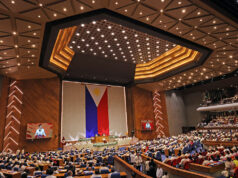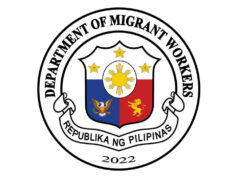ConCom elevates CHR as constitutional body
By Camille A. Aguinaldo
THE Consultative Committee (ConCom) tasked to review the 1987 Constitution voted 16-1-1 on Monday to elevate the Commission on Human Rights (CHR) as an independent constitutional body under its proposed draft Charter.
This meant the CHR would be a constitutional body similar to the Commission on Audit (CoA) and Commission on Civil Service (CSC), said Concom spokesperson Ding Generoso in a mobile phone message.
Under the Article 9 of the 1987 Constitution, constitutional commissions are composed only of CoA, CSC, and the Commission on Elections (Comelec). Meanwhile, the CHR was created as an “independent office” enshrined in Article 13, Section 17 and 18.
In a statement, ConCom said declaring the CHR as a constitutional body would strengthen its investigative powers and expand its membership to include representatives from the marginalized sectors, indigenous peoples, and environmental advocates.
“The inclusion of a representative of the marginalized sector is also necessary because the socio-economic rights are for the benefit of the poor and marginalized sector of society,” Concom chairman and former chief justice Reynato S. Puno said.
The consultative body also plans to expand the coverage of CHR’s mandate to include socio-economic and environmental rights as well as its jurisdiction over not only state actors but non-state or private actors as well.
Mr. Puno said the changes in CHR’s mandate were also meant to correct the misconception that only state actors violate human rights.
“Its mandate now should be to go after all violators, whether government (or) nongovernment actors,” he said.
The ConCom’s decision was also in line with the CHR’s position where its chairman Jose Luis Martin C. Gascon was quoted as saying that human rights institutions, such as the CHR, should be “pluralist in composition” and “diverse in representation.”
Mr. Gascon also pointed out during his presentation to ConCom on Apr. 3 that CHR should not be given prosecutorial powers since this was an executive function.
“So to give CHR that function may create a complication because if it were serve as a watchdog on the state duty with respect to human rights and it is given powers to prosecute human rights violation, then the question is who will watch the watchdog?” he said.
He proposed instead for a special prosecutor or a special section in the National Prosecution Service dedicated to human rights that would bring cases to either designated courts or specialized courts.



